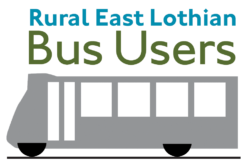Harry Barker is Chairman of The Omnibus Society and regular contributor to the professional bus press and media.
We may have to accept that it is unlikely that a major increase in the number of services or frequency will be seen in the foreseeable future for financial reasons, both the commercial operators and the Council being restricted in this regard.
Therefore any improvement will require to come from better practices within the current network which are not expensive to implement.
Passengers should expect the following minimum standards to be available:
Continue reading Opinion piece: How to improve bus services from a passenger perspective
